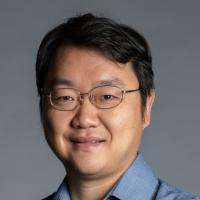Graduate Program
Welcome to our new Graduate Program!

Pharmacology – the study of how drugs or other agents affect cells and living organisms - is a foundational science that intersects with many disciplines in basic science and human disease. Our graduate program emulates the breadth of pharmacology by providing our students with a solid foundation and broad training in cellular and organismal mechanisms, as well as translational science. The scientific focus of the program is to merge basic science research with emergent research in developing new avenues for therapeutic interventions. Faculty in the program can be focused on developing a basic biological understanding of mammalian organ systems, developing conceptually new avenues/technologies for therapeutics, or combining both of these approaches in an interdisciplinary manner.
Our graduate program has recently been re-vamped to create a modern, vibrant program that is well-aligned with both the historical foundations and new strategic vision of the department. To realize this vision, we have new leadership, co-directors Dr. Nikhil Sharma and Dr. Yonghao Yu, whose research is focused in areas that are vital to pharmacology.
Our program is ideal for students who are interested in studying basic cellular mechanisms with an emphasis on their application to human disease. The research interests of our program faculty encompass all areas of modern pharmacology, including cancer pharmacology, cardiovascular pharmacology, and neuropharmacology. The incorporation of novel interdisciplinary approaches (e.g., chemical biology) towards the development of therapeutic strategies is also emphasized. Our graduate program faculty draw from several basic science and clinical departments at Columbia University Irving Medical Center, as well as Columbia University, which enables seamless collaborative and interdisciplinary interactions for our students.
Although rigorous, our program is individualized to each student, allowing students to gain a strong foundation in pharmacology, while adapting the specific educational components to the specific research interests of each student. Training in the first year consists of courses aligned with the integrated program in cellular, molecular, and biomedical studies (CMBS), as well as research rotations in the laboratories of approved program faculty. In the second year, students begin their thesis research and continue to take their remaining core courses as well as elective courses relevant to their thesis work. At the end of the second year, students take their qualifying exam, for which they prepare and defend a research proposal that is related to their intended thesis research. Subsequent years are devoted to the research, writing and defense of their PhD thesis. As they advance in their degree, students benefit from the advice of their faculty mentor, an advisory committee of expert faculty with whom they meet regularly, and our outstanding and dedicated program co-directors, Dr. Nikhil Sharma and Dr. Yonghao Yu.
Students benefit from the rewarding environment at Columbia University, which is rich in diversity and has unparalleled faculty. Students also benefit from the cultural environment of New York City, with its many museums, theaters, and historical venues.
Leadership
Contact Us
Get more information on applying or answers to questions about the Molecular Pharmacology & Therapeutics Graduate Program.



